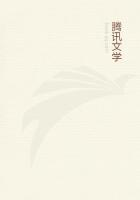For my part, the puff of every accident not only carries me along with it according to its own proclivity, but moreover I discompose and trouble myself by the instability of my own posture; and whoever will look narrowly into his own bosom, will hardly find himself twice in the same condition. I give to my soul sometimes one face and sometimes another, according to the side I turn her to. If I speak variously of myself, it is because I consider myself variously; all the contrarieties are there to be found in one corner or another; after one fashion or another: bashful, insolent; chaste, lustful; prating, silent; laborious, delicate; ingenious, heavy; melancholic, pleasant; lying, true; knowing, ignorant; liberal, covetous, and prodigal: I find all this in myself, more or less, according as I turn myself about; and whoever will sift himself to the bottom, will find in himself, and even in his own judgment, this volubility and discordance. I have nothing to say of myself entirely, simply, and solidly without mixture and confusion. 'Distinguo' is the most universal member of my logic. Though I always intend to speak well of good things, and rather to interpret such things as fall out in the best sense than otherwise, yet such is the strangeness of our condition, that we are often pushed on to do well even by vice itself, if well-doing were not judged by the intention only. One gallant action, therefore, ought not to conclude a man valiant; if a man were brave indeed, he would be always so, and upon all occasions. If it were a habit of valour and not a sally, it would render a man equally resolute in all accidents; the same alone as in company; the same in lists as in a battle: for, let them say what they will, there is not one valour for the pavement and another for the field; he would bear a sickness in his bed as bravely as a wound in the field, and no more fear death in his own house than at an assault.
We should not then see the same man charge into a breach with a brave assurance, and afterwards torment himself like a woman for the loss of a trial at law or the death of a child; when, being an infamous coward, he is firm in the necessities of poverty; when he shrinks at the sight of a barber's razor, and rushes fearless upon the swords of the enemy, the action is commendable, not the man.
Many of the Greeks, says Cicero, --[Cicero, Tusc. Quaes., ii. 27.]--cannot endure the sight of an enemy, and yet are courageous in sickness; the Cimbrians and Celtiberians quite contrary;
"Nihil enim potest esse aequabile, quod non a certa ratione proficiscatur."
["Nothing can be regular that does not proceed from a fixed ground of reason."-- Idem, ibid., c. 26.]
No valour can be more extreme in its kind than that of Alexander: but it is of but one kind, nor full enough throughout, nor universal.
Incomparable as it is, it has yet some blemishes; of which his being so often at his wits' end upon every light suspicion of his captains conspiring against his life, and the carrying himself in that inquisition with so much vehemence and indiscreet injustice, and with a fear that subverted his natural reason, is one pregnant instance. The superstition, also, with which he was so much tainted, carries along with it some image of pusillanimity; and the excess of his penitence for the murder of Clytus is also a testimony of the unevenness of his courage.
All we perform is no other than a cento, as a man may say, of several pieces, and we would acquire honour by a false title. Virtue cannot be followed but for herself, and if one sometimes borrows her mask to some other purpose, she presently pulls it away again. 'Tis a vivid and strong tincture which, when the soul has once thoroughly imbibed it, will not out but with the piece. And, therefore, to make a right judgment of a man, we are long and very observingly to follow his trace: if constancy does not there stand firm upon her own proper base, "Cui vivendi via considerata atque provisa est,"
["If the way of his life is thoroughly considered and traced out."--Cicero, Paradox, v. 1.] if the variety of occurrences makes him alter his pace (his path, I mean, for the pace may be faster or slower) let him go; such an one runs before the wind, "Avau le dent," as the motto of our Talebot has it.
'Tis no wonder, says one of the ancients, that chance has so great a dominion over us, since it is by chance we live. It is not possible for any one who has not designed his life for some certain end, it is impossible for any one to arrange the pieces, who has not the whole form already contrived in his imagination. Of what use are colours to him that knows not what he is to paint? No one lays down a certain design for his life, and we only deliberate thereof by pieces. The archer ought first to know at what he is to aim, and then accommodate his arm, bow, string, shaft, and motion to it; our counsels deviate and wander, because not levelled to any determinate end. No wind serves him who addresses his voyage to no certain, port. I cannot acquiesce in the judgment given by one in the behalf of Sophocles, who concluded him capable of the management of domestic affairs, against the accusation of his son, from having read one of his tragedies.
Neither do I allow of the conjecture of the Parians, sent to regulate the Milesians sufficient for such a consequence as they from thence derived coming to visit the island, they took notice of such grounds as were best husbanded, and such country-houses as were best governed; and having taken the names of the owners, when they had assembled the citizens, they appointed these farmers for new governors and magistrates; concluding that they, who had been so provident in their own private concerns, would be so of the public too. We are all lumps, and of so various and inform a contexture, that every piece plays, every moment, its own game, and there is as much difference betwixt us and ourselves as betwixt us and others:
"Magnam rem puta, unum hominem agere."
["Esteem it a great thing always to act as one and the same man."--Seneca, Ep., 150.]
Since ambition can teach man valour, temperance, and liberality, and even justice too; seeing that avarice can inspire the courage of a shop-boy, bred and nursed up in obscurity and ease, with the assurance to expose himself so far from the fireside to the mercy of the waves and angry Neptune in a frail boat; that she further teaches discretion and prudence; and that even Venus can inflate boys under the discipline of the rod with boldness and resolution, and infuse masculine courage into the heart of tender virgins in their mothers' arms:
"Hac duce, custodes furtim transgressa jacentes, Ad juvenem tenebris sola puella venit:"
["She leading, the maiden, furtively passing by the recumbent guards, goes alone in the darkness to the youth."--Tibullus, ii. 2, 75.]
'tis not all the understanding has to do, simply to judge us by our outward actions; it must penetrate the very soul, and there discover by what springs the motion is guided. But that being a high and hazardous undertaking, I could wish that fewer would attempt it.













